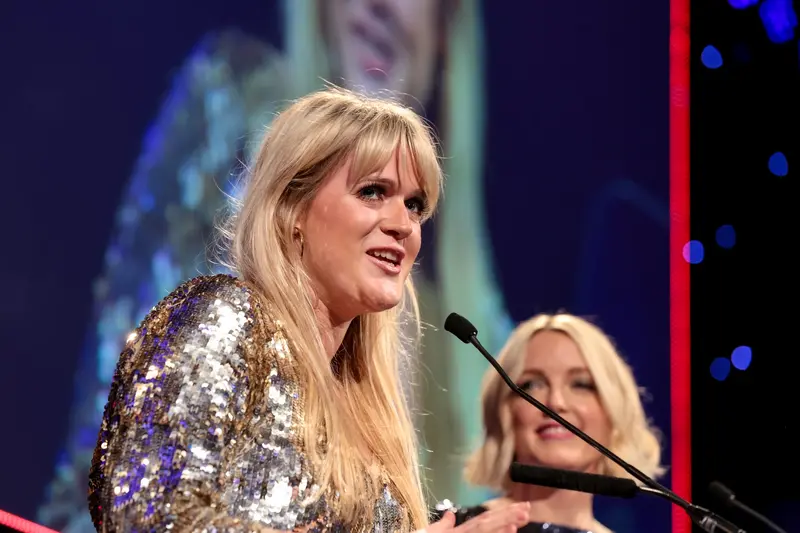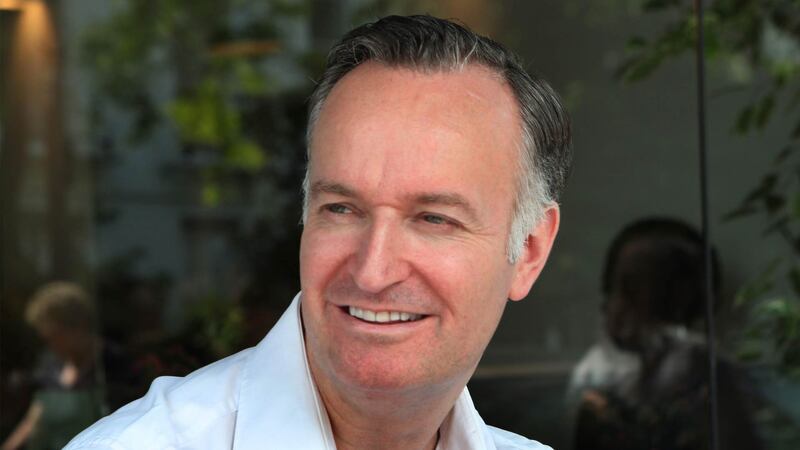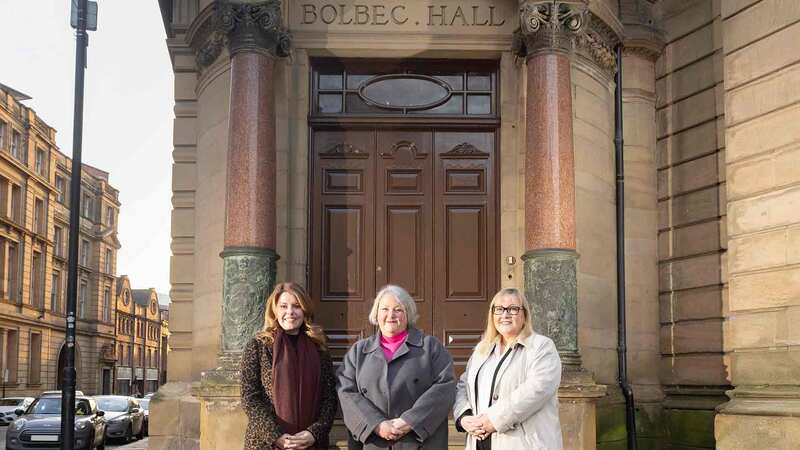You are viewing your 1 free article this month. Login to read more articles.
Children's author sparks debate on school visit etiquette
Children’s authors have debated the opportunities and perils of school visits on Twitter after writer Maz Evans shared advice for schools.
The author of Who Let the Gods Out? (Chicken House) tweeted tips to teachers and librarians from her @MaryAliceEvans account about preparation, "looking after the author", forewarning them about workshops, providing their books to sell and offering “crowd control”. The messages were retweeted and liked hundreds of times and led to a social media debate which is still raging on about how best to conduct school visits.
Evans told The Bookseller that the majority of visits were “wonderful” but that she wanted to help schools get the most out of them as they are a heated topic between children's authors. She said: "If you gather lots of children’s authors into a room within minutes we will get on to school visits and you hear some real horror stories.
“The worst I had was when I was presenting to children and one of them ran up to me and snatched my glasses off my face and threw them to another child. I looked to the teachers to help me but they were on their phones and said ‘we are a really deprived area, what do you expect?’ I wanted to cry.”
Evans, who generally visits one school a week, revealed she has grown frustrated when time has been wasted over misunderstandings or lack of organised resources. The former journalist said: “There was one occasion when I spent lots of time persuading the school that I wasn’t the Geography supply teacher and wasn’t about to take a class on coastal erosion. I always send a sheet before saying ‘can you make sure the kids have a pencil’ because you can waste time just looking for pencils.
“There are some really easy things schools can do to make them run more smoothly and be more enjoyable for us.”
Evans believes the most important thing institutions can do is inform the children about the author ahead of the visit so they can become as engaged possible.
The writer, who lives in London, said: “I’ve been all over the British Isles to a mixture of schools, private and public. It is not about the money or the area or the ability it is about the preparation of the staff. Most schools do this – they have got the children to think of questions beforehand. They have got the children excited and the red carpet out and you’re made to feel like you’re in One Direction. It’s wonderful when children are excited and want to know all about it.”
Evans emphasised to The Bookseller that her advice was “not intended as criticism” of the schools as she “realises what an important job” the teachers and librarians do. She said: “We all know what pressures they under and it is not a criticism of what an important job they do. I have also heard of authors behaving badly and refusing to sign books in a school. We have to remember it is a school at the end of the day.”
The author said that visits, whether free as part of a publicity tour or paid for by the school, is mostly an enjoyable part of the job for authors. She said: “When you get a story out of a child who thought they couldn’t write one before, that is amazing."
She added: “There is such an important symbiotic relationship between authors and schools if you can catch the imagination of the children. These visits can have a massive impact on children who might not meet an author otherwise or ever go to a literary festival.”
The Twitter conversation moved on to the affordability of school visits for both authors and schools. Evans told The Bookseller the fact is “that many schools can't afford author visits, yet many authors can't afford not to do them” describing it as a “worrying trend”.
Others pitched in with concerns about lack of money for school librarians and libraries themselves. Alex Evelyn tweeted from her @alexrevelyn account that author visits were increasingly dependent on fundraising from the Parent Teacher Association. She said: “We are finding that PTA fundraising becoming more and more important in light of funding cuts...so all the 'nice' things coming from that.”
Freelance publicisit Nina Douglas tweeted from her @ninadouglas account: “It is definitely a changing world. I've noticed a lot more of 'lack of budget' and 'no sales' type events recently.”
A book blogger and teacher known on Twitter as @myatticlibrary said: “My school won't pay anything. They recently got rid of our school librarian. We're a secondary school to [approximately] 1,800 kids. It's so sad.”
Editor and writer, known as @minervamoan on Twitter, said: “Small (one form entry) schools also feel disadvantaged as we just can't sell significant no. of books. Feel as if letting the authors down.”
She told The Bookseller that there was a wealth of useful information on conducting school visits from the Society of Authors (which offers guidelines on educational visits) as well as Authors Aloud, an organisation that helps schools to find authors to visit them. Other sources cited on Twitter by authors included Reading Zone and Patron of Reading, the Scottish Book Trust’s Live Literature project as well as options such as “buddying up” with other schools and bookshops and arranging Skype chats with authors.
Two days after initiating the discussion about school visits, Evans revealed that the conversation over affordability is making her rethink her current fee. She tweeted: “I am going to reconsider my current offering in the light of these conversations, to make it cheaper for schools and easier for me.
“This has really lit me up. Authors should be paid, but no school should miss out [because of] money. I feel a campaign: 'Fair Pay And An Author Day'."
In 2015, children’s authors told The Bookseller that fewer schools were offering to pay for author visits. Joe Craig, author of the Jimmy Coates series (HarperCollins Children’s), revealed he began noticing that “school librarians were having to be craftier and tougher about getting hold of the money for an author visit”. The school took more interest in his visits when he increased his fees in 2007 and Maz echoed this on Twitter saying “I found schools wary of free events.”
Author of Alex Sparrow and the Really Big Stink, Jennifer Killick, said she had even been asked to donate proceeds from her books. The writer, who is published by Firefly Press, tweeted: “Sometimes people ask me to visit for free and give them a percentage of the book sales… it’s hard not to be insulted.”













